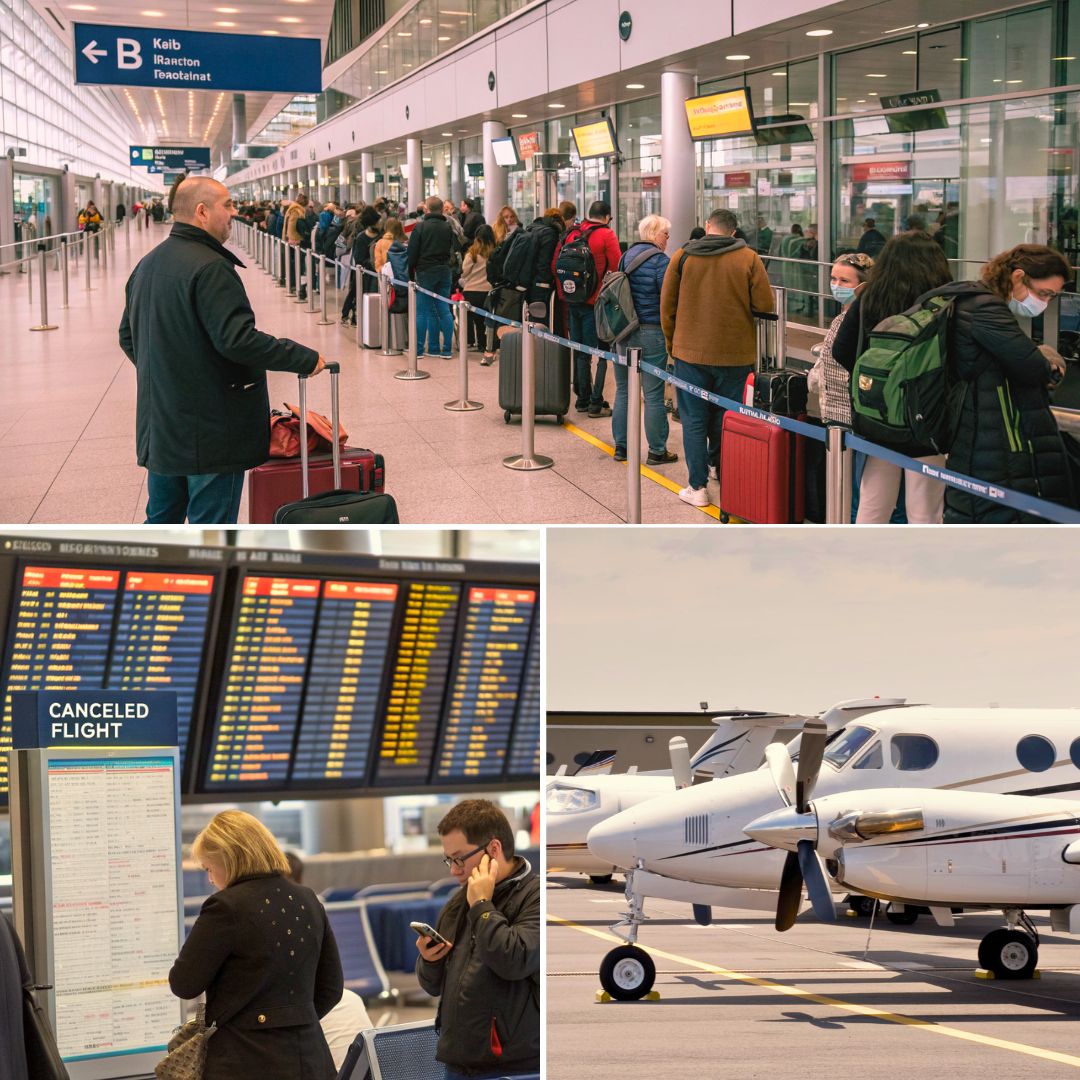On Wednesday, more than 120 flights to and from major UK airports including Heathrow, Gatwick, Edinburgh, Manchester, Birmingham, Cardiff, and London City were cancelled or delayed due to a radar-related technical glitch at National Air Traffic Services’ (NATS) control centre in Swanwick. This unprecedented failure during the peak summer travel period resulted in a temporary suspension of flight departures and caused widespread disruption extending for several hours.
Airline operators Ryanair and easyJet expressed strong dissatisfaction, demanding accountability from NATS and calling for the resignation of its CEO Martin Rolfe. NATS publicly apologised, explaining that the technical fault was resolved within 20 minutes after switching operations to a backup system; however, the ripple effects continued well into the evening, impacting thousands of passengers.
Air Traffic Disruption and Airline Reactions
The technical fault, described by NATS as radar-related, triggered a pause on departures at multiple key airports across the UK. By early evening, this led to the cancellation of at least 67 departures and 55 arrivals, with a slew of other flights delayed or diverted to alternative airports to ease congestion.
Ryanair’s Chief Operating Officer, Neal McMahon, criticised the incident sharply, calling it “outrageous” and demanding accountability, including the resignation of NATS CEO Martin Rolfe. McMahon highlighted the frustration that stemmed especially from the fact that a similar outage occurred in August 2023, which caused widespread disruption and left many questioning the contingency planning and infrastructure resilience of Britain’s air traffic control system.
EasyJet’s COO, David Morgan, described the failure as “extremely disappointing,” pointing to the significant inconvenience caused to passengers during one of the busiest travel times of the year. Thousands of travellers voiced frustration on social media and through direct complaints, with many caught in limbo, missing important commitments such as weddings, family reunions, and business appointments. NATS issued an immediate apology, reassuring the public that the issue was not a result of cyberattack or security breach, and that the backup system swiftly restored operational safety and normalisation at key control centres.
Historical Context and Ongoing Concerns
This radar failure is not an isolated incident but part of a troubling pattern over the last two years. In August 2023, the UK experienced its most severe air traffic control outage in nearly a decade, a catastrophic event that stranded hundreds of thousands of passengers and brought the aviation industry to a grinding halt.
The recurrence of such failures has intensified scrutiny from government officials, industry experts, and passengers alike. Transport Secretary Heidi Alexander confirmed that government authorities are monitoring the situation closely and urged travellers to stay updated via their airlines as recovery efforts continue.
These repeated technical disruptions raise critical questions about the robustness and future readiness of the UK’s air traffic management infrastructure, especially as demand continues to surge in the post-pandemic travel boom. The failures undermine public confidence and strain the goodwill of travellers who rely on timely and safe air travel. Calls for comprehensive investigations and reforms have gained momentum, pressing for improved investment, transparency, and resilience mechanisms to prevent similar incidents.
The Logical Indian’s Perspective
The repeated technical failures crippling UK air traffic control systems showcase a broader challenge faced by infrastructure in an increasingly digital and interconnected world. While acknowledging that technology, no matter how sophisticated, is vulnerable to glitches, the pattern of such failures demands urgent and thorough scrutiny. The Logical Indian believes that accountability, transparency, and proactive reforms are essential to rebuild trust and prevent undue distress to millions who depend on safe, reliable air travel.
We advocate for an inclusive dialogue among aviation authorities, government regulators, airlines, and the travelling public to promote transparency, resilience, and mutual understanding. In these moments of disruption, empathy towards affected passengers goes beyond polite concern—it is a call to action for systemic improvement. Our collective focus should be on fostering a culture of continuous improvement, prioritising both technological robustness and compassionate service.
Latest: London’s airspace – the London CTA (Control Area) – is closed due to “technical issues” affecting UK flights. Airline jets unable to key airspace area used for arrivals/departures & overflight. Heathrow to be most impacted. Delays, diversions & cancellations ahead. pic.twitter.com/MAcG2oiAgc
— Alex Macheras (@AlexInAir) July 30, 2025












